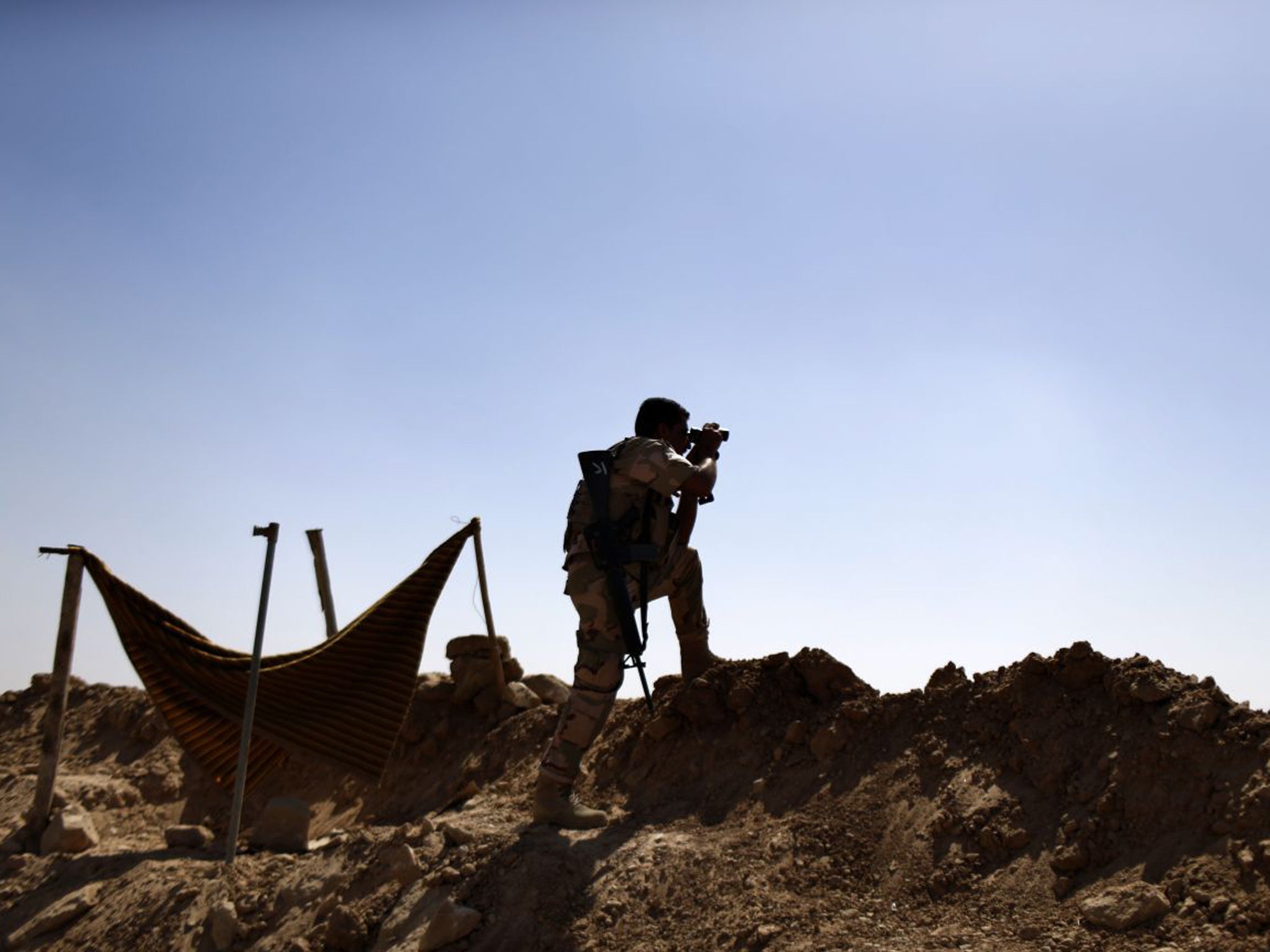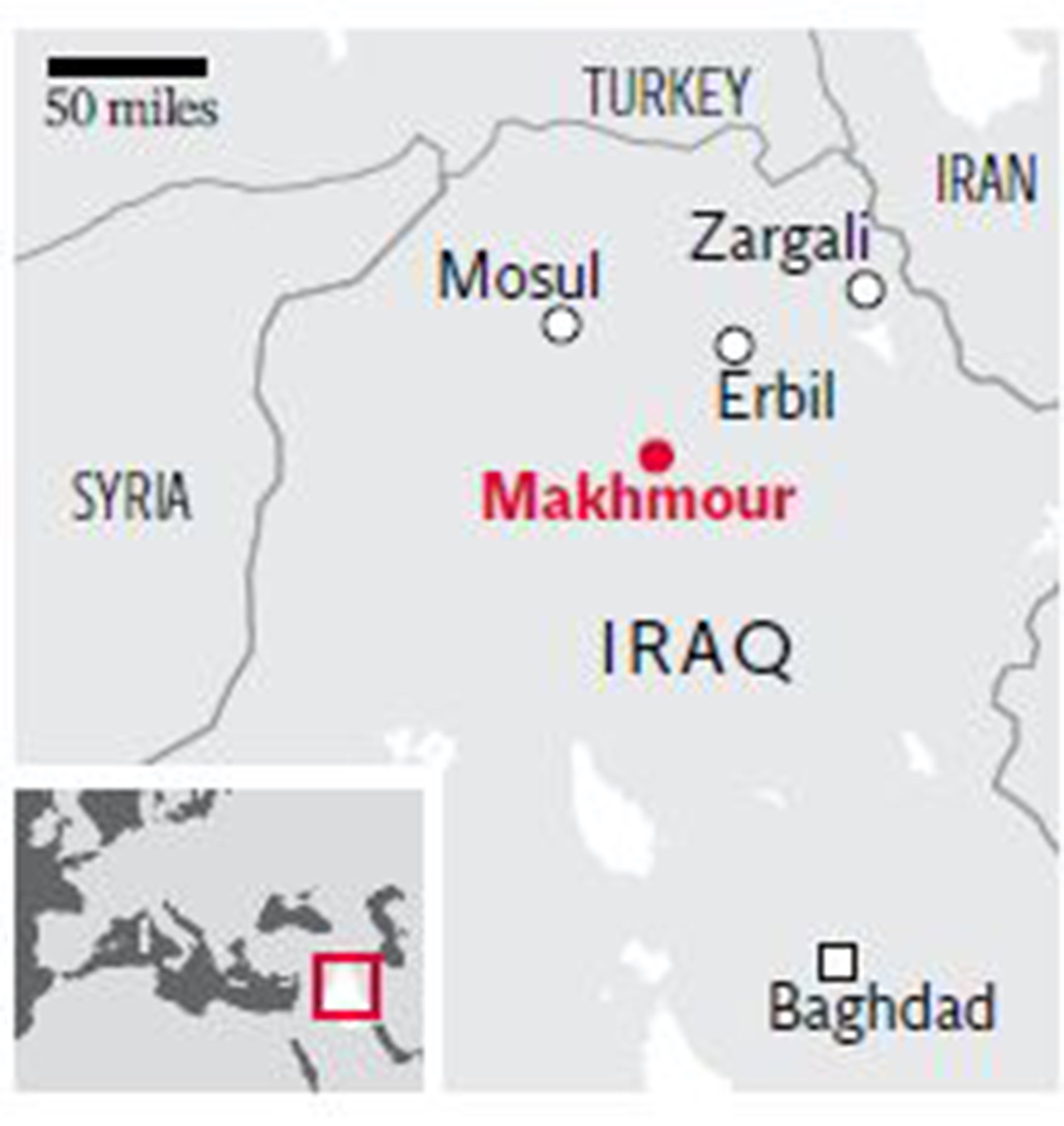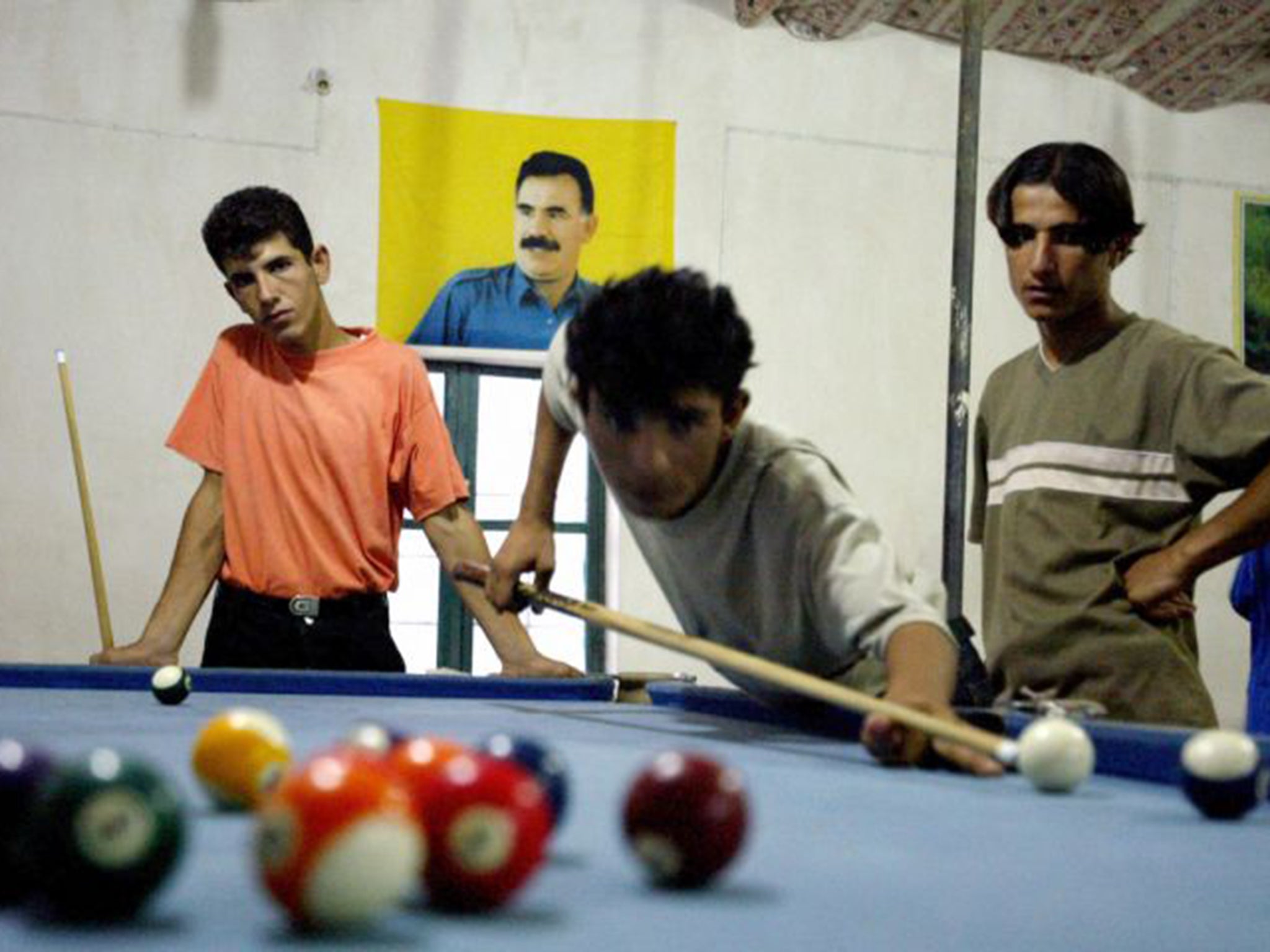Kurdish villagers under fire in PKK-controlled Iraq say Turkey is 'no different from Isis'
Kurdish resistance groups are under attack from air strikes in northern Iraq - and in the Makhmour refugee camp, locals claim that the Turkish military is even more bloody than the militant group

Your support helps us to tell the story
This election is still a dead heat, according to most polls. In a fight with such wafer-thin margins, we need reporters on the ground talking to the people Trump and Harris are courting. Your support allows us to keep sending journalists to the story.
The Independent is trusted by 27 million Americans from across the entire political spectrum every month. Unlike many other quality news outlets, we choose not to lock you out of our reporting and analysis with paywalls. But quality journalism must still be paid for.
Help us keep bring these critical stories to light. Your support makes all the difference.
For the Turkish Kurds in northern Iraq, the bombing raids, abandoned villages and innocent lives lost are all-too-familiar tragedies.
On the outskirts of the Iraqi town of Makhmour on Sunday, two Kurdistan Workers’ Party (PKK) soldiers stood guard outside a camp which has, over the years, twice become a ramshackle village of 12,000 refugees. It has provided sanctuary in Iraqi Kurdistan for Turkish Kurds who fled the worst days of Turkey’s internal conflict in the 1990s.
In the summer, the jihadists of Isis overran the camp – a warren of mud and stone houses. They were eventually ousted by Kurdish Peshmerga and PKK fighters, supported by US-led coalition air strikes.
Now, Kurds are again forced to flee, this time in the mountain villages under attack from Turkey’s air force. Images shared on social media over the weekend revealed the aftermath of one Turkish air strike on Zargali, around 80 miles away from Makhmour in northern Iraq. They show a man standing in ruins of a home. The floor is littered with broken cement blocks and a blanket barely conceals the burnt body of a woman.
Witnesses said that at least five villagers were killed in Zargali by Turkish jets targeting rebels from the PKK, whose bitter insurgency in Turkey for Kurdish rights has been reignited in recent days after a two-year ceasefire.
Dilzar Mustafa, 29, who lives in a town near Zargali, said he heard the bombing raids in the early hours of Saturday morning.
“We saw smoke rising from the village,” he told The Independent. “When we arrived we saw total mess and destruction. I saw several dead bodies and houses that were destroyed, including the village’s mosque that was partly damaged.”
Turkey began air strikes against Isis in Syria and the PKK, which is also one of the main forces battling Isis on the ground in northern Iraq, alongside its Kurdish sister group, the People’s Protection Units (YPG) in Syria, on 24 July.

The Turkish state-run Anadolu Agency has claimed that some 260 rebels have been killed in air raids against PKK targets in northern Iraq. The PKK says the number killed is far lower.
Iraqi Kurdish leaders condemned the air strikes yesterday and called on the militants to leave populated areas to avoid any more civilian casualties. Turkey denied that Zargali was a civilian target and said that careful planning went into identifying targets.
PKK spokesman Zagros Hiwa told The Independent that the air attacks, of which there are estimated to have been hundreds so far, had “unilaterally and practically ended the peace process” between Turkey and the PKK. He described the strikes as an effort to weaken the PKK under the cover of fighting Isis, whom the PKK accuse Turkey of aiding.
In the wake of a suicide bombing believed to have been carried out by Isis in the Turkish town of Suruc which killed more than 30 activists last month, a military arm of the PKK claimed the killing of two Turkish policemen as revenge. The violence continued as Turkish authorities arrested hundreds of Isis and PKK supporters in raids in Istanbul and Ankara.
A suicide attack that killed Two Turkish soldiers and injured dozens of others in the eastern province of Agri was blamed on the Kurdish militants yesterday. In a separate attack, one soldier was killed and four others were injured when their vehicle hit a landmine believed to have been laid by the PKK in the south-eastern Mardin province.
When asked about the attacks on Turkish forces, Mr Hiwa said that his organisation is committed to finding democratic solutions, but “we have to defend ourselves”. He said revenge killings had been carried out on the attackers’ own initiative and not been ordered. The PKK sees its current fight as one for Kurdish freedom against the terrorism of Isis, but it is also considered a terrorist organisation by Western powers.

Ramazan Bozan is the commander of the Makhmour camp. Mr Bozan says that the war of Turkish President Recep Tayyip Erdogan on Isis and the PKK and the resulting civilian deaths is worse than the terrorism of Isis. The US has said that Turkey has the right to defend itself against attacks by the PKK, and has asked the PKK to renounce terrorism. Turkey has given the US permission to use a key air base in the south of the country to target Isis more effectively. However the PKK’s sister party the YPG is currently being backed by US strikes on the ground against Isis in Syria. “This is a kind of betrayal,” Mr Bozan says.
Across the Makhmour camp, in a hall dedicated to the memory of those killed during the war with Turkey, Aysa Toran says her son was killed fighting the Turkish army for the PKK in 1998. She says that two of her daughters are now in Syria fighting Isis with the YPJ (Women’s Protection Units). “Every time I hear the news of more killings I remember my son and feel the same pain,” she says.
Mr Mustafa attended the burials of five villagers killed in the attack on Zargali yesterday, in a nearby town.
Several neighbouring villages have now been abandoned for fear of repeat attacks. Mr Mustafa said that at the burial the crowd chanted “Martyrs never die,” and: “There is no difference between Turkey and Isis.”
Subscribe to Independent Premium to bookmark this article
Want to bookmark your favourite articles and stories to read or reference later? Start your Independent Premium subscription today.
Join our commenting forum
Join thought-provoking conversations, follow other Independent readers and see their replies
Comments